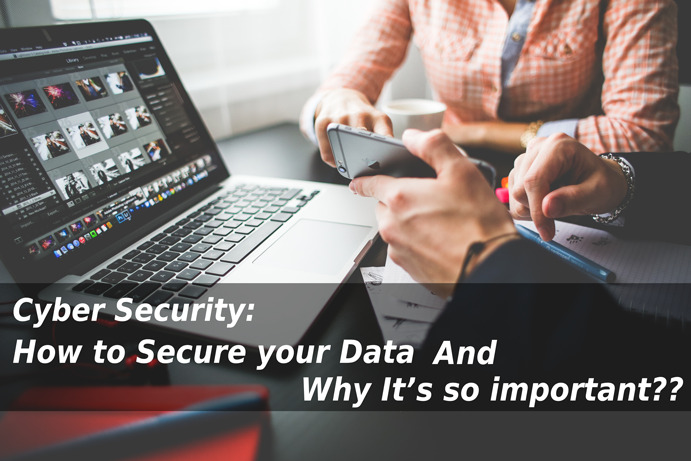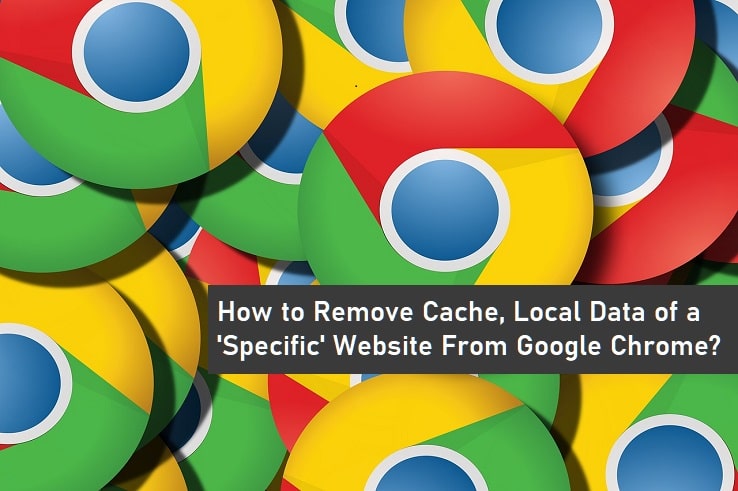What is data? The whole world keeps talking about data and its security. You might have already heard a lot about cyber security/data security and nowadays you might also be hearing a lot about websites of companies getting hacked and their data getting leaked, causing a huge loss to them. So data is basically everything that you save on your digital devices or external storage devices or in online storage such as cloud, be it text files, emails, messages, images, videos, usernames, passwords and what not.
Any useful information in any format that you store at any digital place can be called an important data for you. Take your own example; ask yourself what important data you store at those digital places, from important business information, to emails or personal photos to even the usernames and passwords of various sites, you will find a lot of private data which you sometimes carelessly store in your digital devices and forget about its security aspect.

Here’s some statistics from Symantec Internet Security Threat Report 2016:
Download Full Report
Consider a case when your device is stolen, you have not secured your data in any way and now you have no other option than suffering sleepless nights. What if your email’s password is stolen, and that email account contains all your important business information. In the same way, what if your one drive or google drive password is stolen.

This threat of data stealing is called data theft in legal terms. Besides the above case, there are other possibilities by which your data may be compromised :
1. Data loss due to system crash:
As you know, it is obvious that your computer or any other digital device may not necessarily always work as you expect, so in case it malfunctions or crashes due to any fault, then you would be helpless if your data is gone especially you haven’t backed it up.
2. Data corrupted due to hard disk fault:
Sometimes, the internal memory of your laptop is not enough to store your data and so you might have bought external hard disk and might be carelessly storing data in it. But have you ever thought about what if the hard disk crashes, be it internal or external.
3. Data loss by accidentally deleting or over writing it:
Human errors are like natural calamities and sometimes you will highly regret if by mistake, you accidentally delete or overwrite your data with your own hands. And the feeling is so awful that it can’t be described in words; trust me as I am saying this with my own experience.
4. Data corruption by computer viruses:
It is impossible that you are unaware about the disasters that computer viruses may cause if you use digital devices. You may have already experienced the losses if you didn’t take care about data corruption due to viruses.
5. Data hacked by unauthorized users:
Now this is the same scenario that I have explained above, if your passwords are stolen or cracked by any stranger or unwanted person, your data may simply get hacked.
6. Destroyed in natural disasters:
This is a very rare case, but if there is a huge natural disaster, then all your devices may get destroyed. Cloud storage may be helpful in such cases. Now, you must have understood the importance of data security.
Let me tell you about how to secure your private data so that you don’t fall a victim of the above data threats. How to secure your private data? Please follow these steps:

1. The first step is to take regular back up of all files. If you have a smartphone, there is an option to sync your phone with cloud. For android phones, the data is automatically backed up to google drive and for windows phone, there is one drive. Similarly, there is icloud for iphones. All the data such as your contacts, images, videos, text files, etc. will be copied to your exclusive cloud account. So even if you lose your device, your data will be safe in the cloud and it can be accessed from anywhere in the world by simply logging in to your account. For laptops also, there are apps for your cloud that you can find from the app store.
2. You can also install a good premium/freemium antivirus to prevent your data from corruption by viruses. Also remember to keep the anti-virus software updated every day, usually there is an option for automatic update, so you really won’t need to worry for updating it. Some of the good paid anti-virus such as quick heal has made it free to download for android users so you can even take that advantage.
3. Using passwords is a very common practice among all of us but still if you don’t keep your data password protected, then please start protecting it. Additionally, I will suggest phrases as passwords. Example, ‘Trees1are2green!’ Notice that I have used capital letter at the start of the passphrase, which is not a new practice for us; I have also used numbers instead of spaces and an exclamation in the end. Phrases like this will serve as a very strong password which is very easy to remember, as writing down or storing passwords somewhere is a bad practice. Also remember to never keep same passwords for multiple websites.
Related Articles: Cyber Security: 15 simple steps to protect your self against cyber attacks
4. If you have some real top secret data, then you may additionally keep a copy of it in a physical drive such as hard disk or pen drive and keep it in a safe or locker and use it only when required. Hence multiple copies of important data will help in a disastrous situation. The external storage nowadays also comes with their own security software in which you can store your data in a password protected manner. You can additionally make them write protected to avoid accidental over writing.
5. Encrypt your digital devices. Encryption is easy and the option can be found from device settings.
6. While using online services, always remember to log out of any website after using it especially if you are not on personal computer. Consider a situation where you forget to logout from some e-commerce website and someone else can see your orders, saved cards or even place a new order or possibly change password. Similarly if it’s a banking website, then the situation will be worse, however banks usually have a practice to log you out automatically after some duration of inactivity. You may additionally check that your URL must start with https:// to ensure that your data exchange is being encrypted.
7. Use 2-factor authentication wherever applicable so that no one else than you can authorize access to sensitive data. You should especially take care while using social media and not forget to look after privacy settings, as your personal information is more likely to get disclosed through social media nowadays.
I am sure following all the above steps will definitely help secure your private data and push you a level up in your private data security.
Did you find these tips useful?? Share this article for the people you care for!
Author: Vivek Desai



